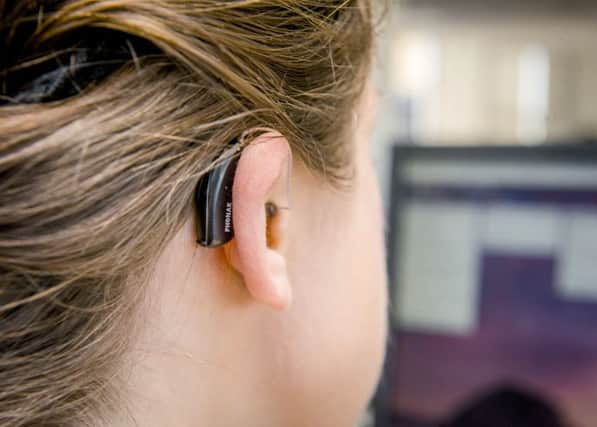Introducing the recreational hearing aid you'll be able to buy over the counter


Hearing aids – essentially audio amplification devices not different in principle from those used in other walks of life – are in many cases hardly any smaller than they ever were. Those that have been compressed to the point that they are nearly invisible will cost you up to £4,000 if you need one in each ear.
The reason for this has more to do with economics than technology. Nearly all of the world’s hearing aids are made by the same half-dozen companies, and are prescribed and fitted under the supervision of specialists, all of whose time costs money.
Advertisement
Hide AdAdvertisement
Hide AdIt is, of course, possible to get a hearing aid free on the NHS, if your doctor agrees that you need one. But they are nearly always the bulbous ones that sit noticeably behind your ear. Smaller units are available only from commercial providers like Boots and Specsavers.
But that may soon change. Because while hearing loss is for many a serious medical issue, for others it is a social inconvenience. The inability to pick out conversation in a crowded pub or restaurant is, for instance, one of the most common symptoms of reduced hearing, yet is often not severe enough to warrant professional intervention.
However, it is just such conditions that have triggered the biggest shake-up the hearing aid industry has yet seen.
In the US, regulations newly signed into law allow for the provision of “over the counter” devices for adults who believe that they have mild-to-moderate hearing loss. No medical or other specialist staff are involved; the gadgets will be for sale in the same way as other consumer electronics.
Advertisement
Hide AdAdvertisement
Hide AdThat means the door will be opened to international manufacturers like Apple and Samsung to design and produce miniature amplification aids to their own specification. That in turn means that they will start to be sold over here.
They won’t necessarily be completely invisible, but neither will there be a stigma attached to their use – no more so than using a Bluetooth earpiece. Nor will it necessarily be legal for their makers to refer to them as “hearing aids” – but for those who need them, they will serve pretty much the same purpose.
In the UK, the makers of conventional aids, as represented by the British Irish Hearing Instrument Manufacturers Association, believe that the provision of over-the-counter devices is neither demanded nor beneficial. That, of course, is more or less what the record companies said about downloaded music a generation ago.
It’s certainly true that for those with a diagnosable condition, the US legislation and any possible knock-on effect here will make little difference. But there is an as-yet unserved market for what might be called recreational users who would not qualify for NHS treatment and who are put off by the current retail prices but who feel they would benefit from some occasional artificial assistance in a crowded environment.
Advertisement
Hide AdAdvertisement
Hide AdFor those users, of any age, the expense of a couple of hundred pounds on a trendy-looking Apple product could be life enhancing. And small white earpieces – let’s call them iAids – could become as familiar a sight in pubs of the future as mobile phones are today.